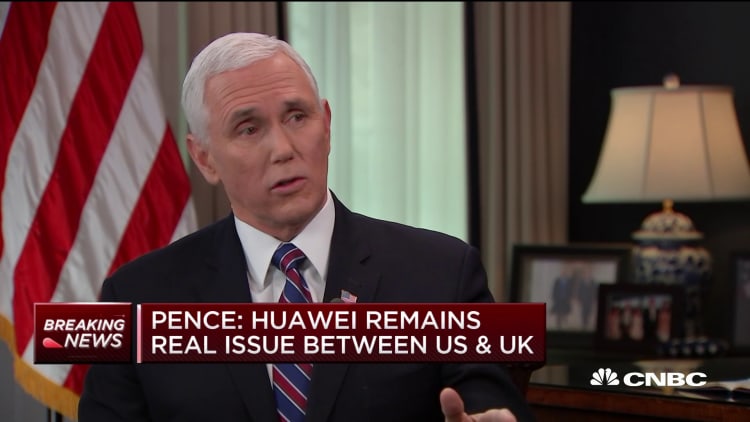ORLANDO, Fla. — Air Force leadership stressed that the global race to develop 5G networks will be a crucial part of developing the military's newest sister service branch dedicated to space.
"We need to up our game in 5G," Will Roper, the Air Force's acquisition head, explained Friday at the Air Warfare Symposium in Orlando, Florida.
"As more autonomy moves to the edge of the internet of things, it's going to have to be supported by more bandwidth," he said, adding that space-based communications will play a key role in connecting 5G devices. "It would be a shame that if something that is going to control most of the data moving from machine to machine commercializes first overseas," Roper added.
The Trump administration is working to isolate China's Huawei, the world's largest telecommunications equipment manufacturer, from developing a larger foothold in U.S. partner countries. The administration has specifically worked to keep members of the "five eyes" intelligence-sharing group — the U.S., U.K., Canada, Australia and New Zealand — from working with Huawei.
In January, the Trump administration expressed disappointment after the U.K. announced it would allow Huawei to have limited access to some British 5G mobile networks.
The move has since sparked an aggressive U.S. campaign to deter allies from working with Huawei.
"Our partnerships and our alliances and our friendships, we are about collaboration and cooperation, our adversaries are about coercion," Lt. Gen. David Thompson, vice commander of the Pentagon's newly minted U.S. Space Force, told CNBC on Friday when asked how the Department of Defense would compete against China.
"5G is as important to the future of the Space Force as it is to the Air Force," he added.
The commander of American air forces in Europe added emphasis to the military's warnings about China and next-generation technology.
"At the end of the day, I think we need to be clear-eyed that what the Chinese are trying to do with 5G. It's something that globally we need to pay attention to because that's a threat that frankly if you don't pay attention to it you're going to get yourself in a square corner," U.S. Air Force Gen. Jeffrey Harrigian told CNBC on Friday when asked about the budding tech race between the United States and China.
"It's a complex situation, and frankly I think it's one that as we, the collective we, move forward on this is going to require some education on 5G because there are nuances," he added, on the sidelines of the Air Warfare Symposium.
Last month at the Munich Security Conference, House Speaker Nancy Pelosi warned nations against doing business with Huawei.
"If you want to build a collective conscience of values and respect for human rights and the rest, don't go near Huawei and instead, let's internationalize and build something together that will be about freedom of information," Pelosi, D-Calif., told an audience at the conference.
Read more: Pelosi warns US allies: 'Don't go near Huawei'
Similarly, Secretary of State Mike Pompeo at the conference described Huawei and other Chinese state-backed tech companies as "Trojan horses for Chinese intelligence."
Secretary of Defense Mark Esper also said in a speech at the conference that Beijing was carrying out a "nefarious strategy" through Huawei.



